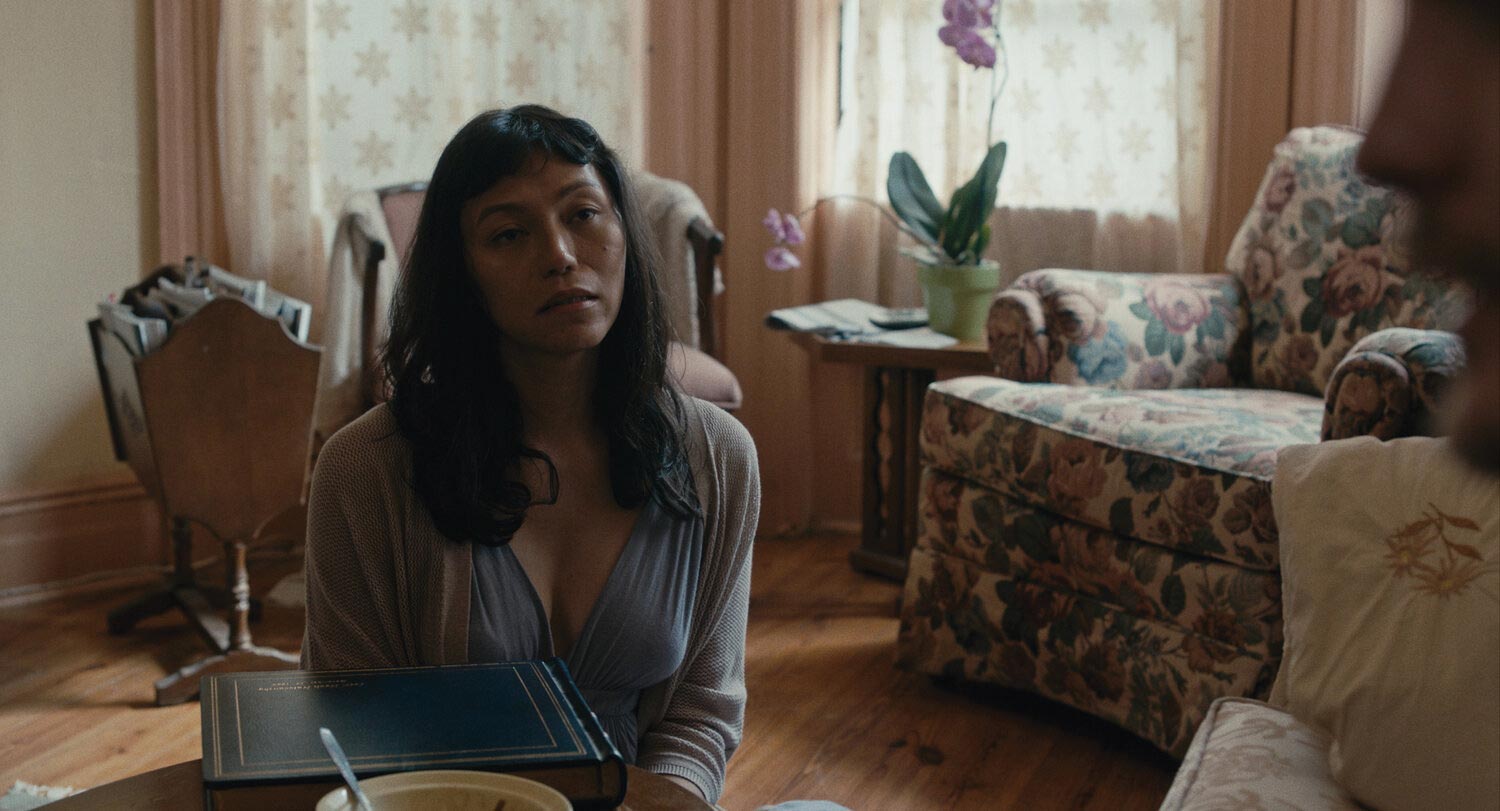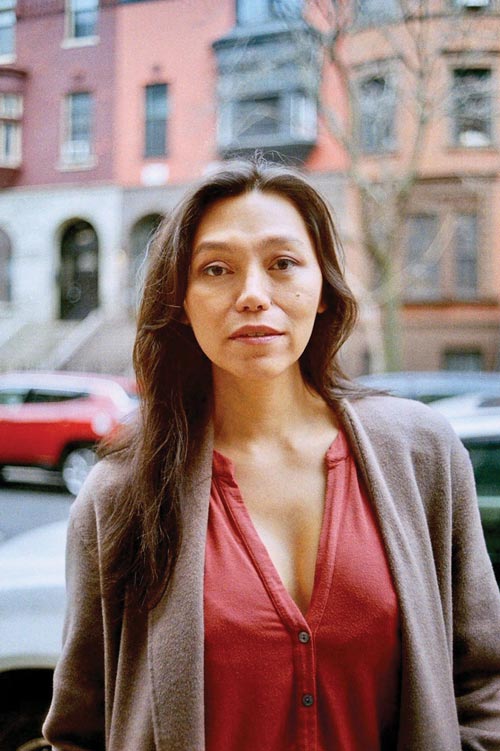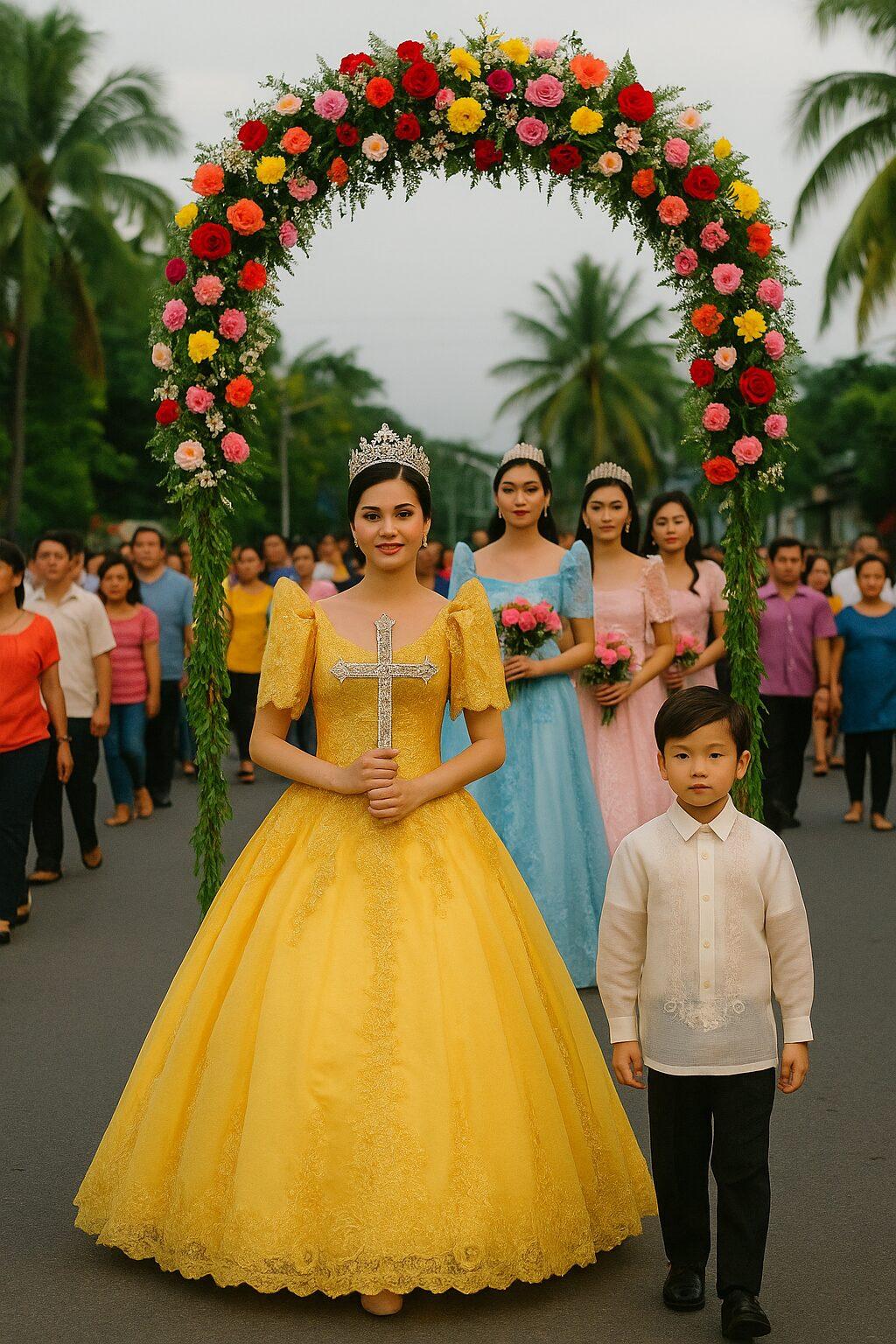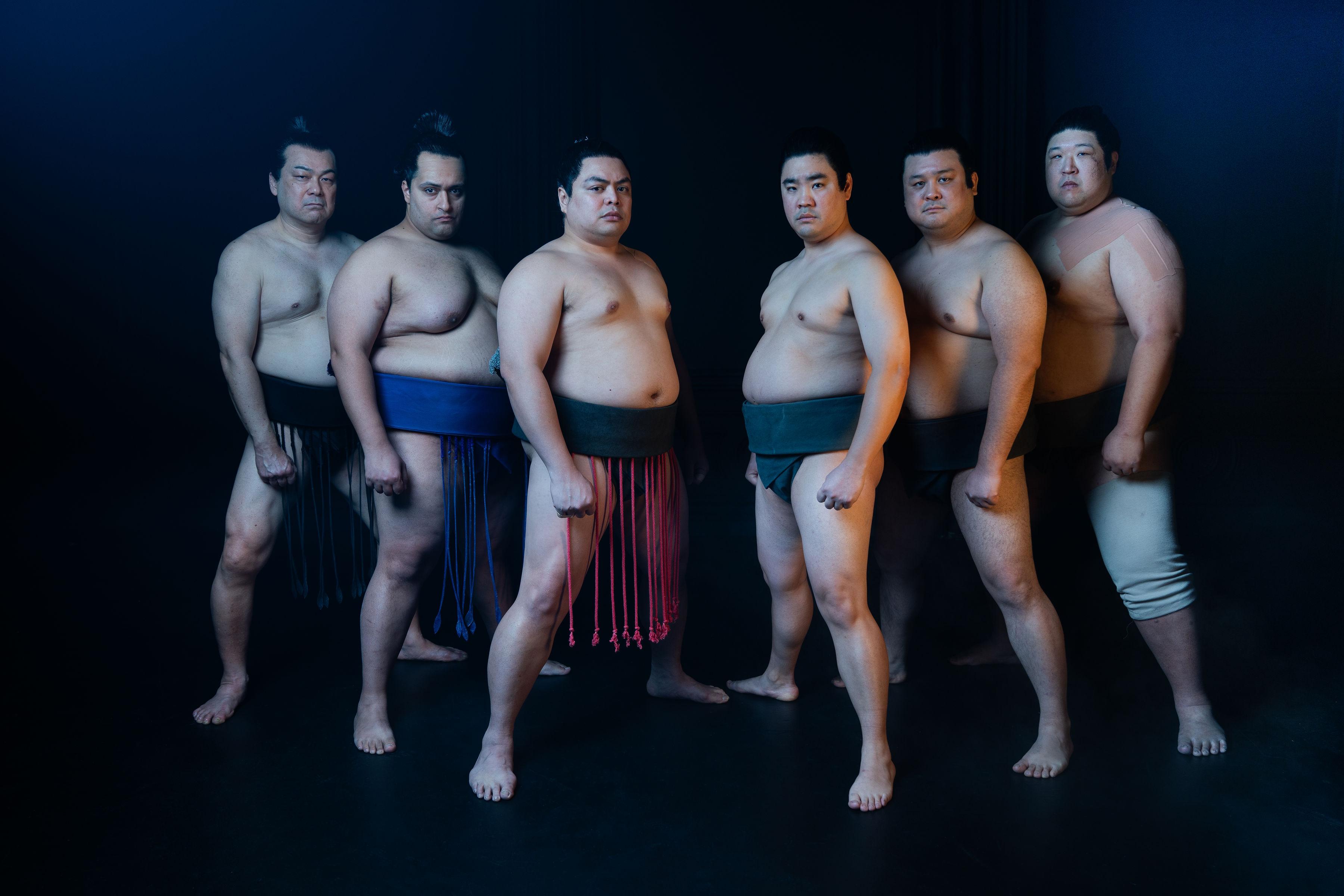Sandoval’s award-winning film Lingua Franca arrives on Netflix, signaling the permanence of diverse storytelling
AS is the experience of so many Filipinos living in the United States, a woman named Olivia living in Brooklyn makes a call to her mother back in the Philippines to discuss money.
It’s a relationship separated by time zones as well as atmosphere: the mother is at a party celebrating a family friend’s birthday while the daughter is just waking up in a quiet cloudy New York morning.
In Tagalog, the mother asks when Olivia — who works as an in-home caregiver for an elderly Russian woman named Olga — will be sending her monthly remittance and expresses worry over the vaguely referenced “dread” happening in the United States. The daughter brushes the comment off and tells her mother she will send the money soon and promises to call her later.

“Lingua Franca,” the third film from Filipina American filmmaker Isabel Sandoval, is an austere portrait of the kinds of love stories that are so authentic and specific that couldn’t have come from any other filmmaker. Sandoval’s first two films, “Apparition” and “Senorita” (in which Sandoval is credited as Vincent Sandoval), were lauded by the prestigious Filipino cinema world. But her latest release is her entrance into the class of international auteurs — filmmakers who’ve established their personal brands of cinematic artistry.
Sandoval paints with a careful hand a subtle narrative about an undocumented trans Filipina, Olivia (played by Sandoval), living in New York City who struggles to make enough money to send back to her mother as well as to pay for an American man to marry her for a green card. In the middle of this quandary, we get a voyeuristic view into the whirling sensuality of a private woman who eventually allows Alex (Eamon Farren), the second-generation Russian American delinquent grandson of Olga (Lynn Cohen, who passed away earlier this year) into her world. Alex becomes a potential link to a green card, and what unfurls in this connection is a subtle but passionate romance.
“This is not filmmaking with a megaphone,” Sandoval told the Asian Journal in a recent phone interview.
The subtlety and the intimacy of the film’s tone and atmosphere are a part of what makes Sandoval stand apart from other emerging filmmakers who rely on pomp and flash to hold audiences’ attention. But the beauty of “Lingua Franca” is that it’s quiet without being boring and paces itself leisurely without feeling unnecessarily drawn out.
“There’s almost a kind of aversion to complexity and in a way, it seems unfashionable and anticlimactic, but that’s my choice as a director. I make quiet, patient, subtle movies that invite people to think,” Sandoval said.
“Lingua Franca” is more than just about a trans Filipina woman’s viscerally contemporary struggle in the United States. It’s the film that signals the emergence of trans and Filipina auteur filmmaking and evolves the conversation of inclusivity in entertainment to go beyond superficial diversity.
The film originally premiered at the 2019 Venice International Film Festival Venice Days program where it made history as the first film directed by and starring an openly trans woman of color to be screened at the competition.
It then made its way among the independent film festival circuit, but on July 9 of this year, the film was acquired by ARRAY, which released “Lingua Franca” on Wednesday, Aug. 26 on Netflix and in select theaters.

ARRAY is a media company that was founded in 2012 by renowned filmmaker Ava DuVernay who had the vision of establishing a production and distribution space for filmmakers of color, LGBT+ filmmakers and women in film.
And, earlier this month, Sandoval took home the jury award for Best Narrative Feature at Geena Davis’ Bentonville Film Festival, becoming the second Filipina American filmmaker in a row to win the festival’s top trophy after Diane Paragas won for “Yellow Rose” the previous year.
“The release of Isabel Sandoval’s third film is beautifully timed to enter the national conversation at an unprecedented moment of cultural reckoning for many, especially as it relates to the rights and dignity of trans people,” ARRAY President Tilane Jones said in a statement. “Ms. Sandoval’s introspective lens provides a depth and intimacy to her storytelling that is rarely embraced on screen.”
“Lingua Franca” does indeed tell a beautifully woven story about a trans woman of color caught in the middle of a very contemporary crisis. Sandoval speaks proudly about her identity as a trans woman, as an immigrant and as a Filipina, but now is the time for her to home in on her identity as an auteur filmmaker.
“Ava has really encouraged me to really think about, ostensibly, my being an auteur and my own authorial voice and to assert my own identity as an artist,” Sandoval explained.
The term lingua franca that originated from Mediterranean languages to describe a language or dialect between two people who don’t share a native tongue. Between the characters of “Lingua Franca,” communication and the mounting drama isn’t relegated to an interchange of words, but a deepening understanding that largely takes place in the spaces between words.
Tonally, the film is reminiscent of independent filmmakers such as Taiwanese master of cinema Wong Kar-Wai, whose romantic masterpiece “In the Mood For Love” played a key role in the overall tone of “Lingua Franca,” Sandoval said. Though the latter lacks the swirling warmth and enduring tenderness of the former, the strength of Sandoval’s film lies in cold uncertainty and Olivia’s private moments of eroticism.
The pitfalls of steamrolling diversity

As a trans Filipina American filmmaker, Sandoval is acutely aware of the historic moment that is her rising cinematic influence. More than ever, audiences are not only welcoming of inclusivity in entertainment but are actively pushing for it.
But many creators of color like Sandoval, this intense demand for diversity is a Catch-22. The industry is allowing for more filmmakers from all walks of life to create and achieve great things, but the incessant calls for diverse representation that often muffles technical appraisal of films may be doing these filmmakers a disservice.
Earlier this year, the excellent South Korean black comedy “Parasite” took home four Academy Awards and broke several records. It was the first non-English language film to win Best Picture and the first South Korean film to receive massive attention at the Oscars. Aside from the historic value of Parasite’s success, it is a technically excellent piece of cinema, much like Jordan Peele’s “Get Out,” that points the light at contemporary issues of classism and discrimination.
But with attention so acutely focused on the fact that these are stories of color made by people of color and their identities, what becomes secondary is a meaningful observation, critique celebration of the craft. Examination and appreciation of a film’s technical and narrative strengths are drowned by press, film writers and social media influencers pontificating about the importance of seeing diverse faces on screen.
Diversity and cinematic excellence are not mutually exclusive ideas but they are often treated as such, by people who advocate for further representation of minorities and people who think it’s folly.
“Lingua Franca” is a film that centers a trans Filipina in a green card crisis, but it’s not a “trans issue film” nor is it a “Filipino film” or even a film that overlays the overall current immigration crisis into its thesis. These are important elements to the story but you can’t drive an auteur film on topical social issues alone.
And just like her films, Sandoval hopes that “Lingua Franca” could propel her to a position in the industry where she’s not just a Filipina trans woman who makes films, but as a filmmaker who also happens to be Filipina and trans.
“We have to establish what is distinct and unique about our voice and our worth because it’s so easy to get pigeonholed or to be put in a box especially for someone like me,” she explained. “There will always be several expectations about you and the community you belong to and it’s easy for Hollywood to just be like, ‘You’re an immigrant so you should be telling immigrant stories or you’re trans so you should be making films about the trans experience,’ and kind of impose on me the kinds of stories that I should be telling and [am] only capable of telling.”
Sandoval also shared that the next project she’s working on has nothing to do with being trans at all but it’s a feature film set in the 16th century during colonialism.
“I’m now at a point where I’m putting my auteur pants on and seeing what diverse array of projects I can come up with and hopefully I can really expand my voice to surprising places, both creatively and emotionally, and I think that’s how you can have a sustainable and fulfilling career in the industry,” she remarked.






